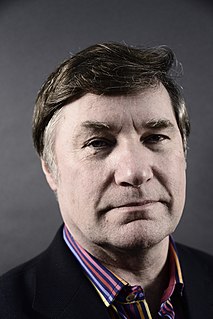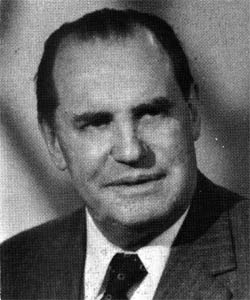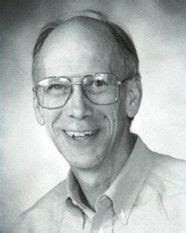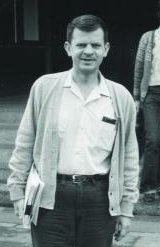A Quote by L. E. J. Brouwer
One cannot inquire into the foundations and nature of mathematics without delving into the question of the operations by which the mathematical activity of the mind is conducted. If one failed to take that into account, then one would be left studying only the language in which mathematics is represented rather than the essence of mathematics.
Related Quotes
Mathematics is a logical method. . . . Mathematical propositions express no thoughts. In life it is never a mathematical proposition which we need, but we use mathematical propositions only in order to infer from propositions which do not belong to mathematics to others which equally do not belong to mathematics.
Mystery is an inescapable ingredient of mathematics. Mathematics is full of unanswered questions, which far outnumber known theorems and results. It's the nature of mathematics to pose more problems than it can solve. Indeed, mathematics itself may be built on small islands of truth comprising the pieces of mathematics that can be validated by relatively short proofs. All else is speculation.
You have this world of mathematics, which is very real and which contains all kinds of wonderful stuff. And then we also have the world of nature, which is real, too. And that, by some miracle, the language that nature speaks is the same language that we invented for mathematics. That's just an amazing piece of luck, which we don't understand.
All our surest statements about the nature of the world are mathematical statements, yet we do not know what mathematics "is"... and so we find that we have adapted a religion strikingly similar to many traditional faiths. Change "mathematics" to "God" and little else might seem to change. The problem of human contact with some spiritual realm, of timelessness, of our inability to capture all with language and symbol-all have their counterparts in the quest for the nature of Platonic mathematics.
Most people have some appreciation of mathematics, just as most people can enjoy a pleasant tune; and there are probably more people really interested in mathematics than in music. Appearances suggest the contrary, but there are easy explanations. Music can be used to stimulate mass emotion, while mathematics cannot; and musical incapacity is recognized (no doubt rightly) as mildly discreditable, whereas most people are so frightened of the name of mathematics that they are ready, quite unaffectedly, to exaggerate their own mathematical stupidity
On foundations we believe in the reality of mathematics, but of course, when philosophers attack us with their paradoxes, we rush to hide behind formalism and say 'mathematics is just a combination of meaningless symbols,'... Finally we are left in peace to go back to our mathematics and do it as we have always done, with the feeling each mathematician has that he is working with something real. The sensation is probably an illusion, but it is very convenient.
Here is a quilted book about mathematical practice, each patch wonderfully prepared. Part invitation to number theory, part autobiography, part sociology of mathematical training, Mathematics without Apologies brings us into contemporary mathematics as a living, active inquiry by real people. Anyone wanting a varied, cultured, and penetrating view of today's mathematics could find no better place to engage.
Mathematics is much more than computation with pencil and a paper and getting answers to routine exercises. In fact, it can easily be argued that computation, such as doing long division, is not mathematics at all. Calculators can do the same thing and calculators can only calculate they cannot do mathematics.
Like a stool which needs three legs to be stable, mathematics education needs three components: good problems, with many of them being multi-step ones, a lot of technical skill, and then a broader view which contains the abstract nature of mathematics and proofs. One does not get all of these at once, but a good mathematics program has them as goals and makes incremental steps toward them at all levels.
Eugene Wigner wrote a famous essay on the unreasonable effectiveness of mathematics in natural sciences. He meant physics, of course. There is only one thing which is more unreasonable than the unreasonable effectiveness of mathematics in physics, and this is the unreasonable ineffectiveness of mathematics in biology.
The principles of logic and mathematics are true simply because we never allow them to be anything else. And the reason for this is that we cannot abandon them without contradicting ourselves, without sinning against the rules which govern the use of language, and so making our utterances self-stultifying. In other words, the truths of logic and mathematics are analytic propositions or tautologies.






































